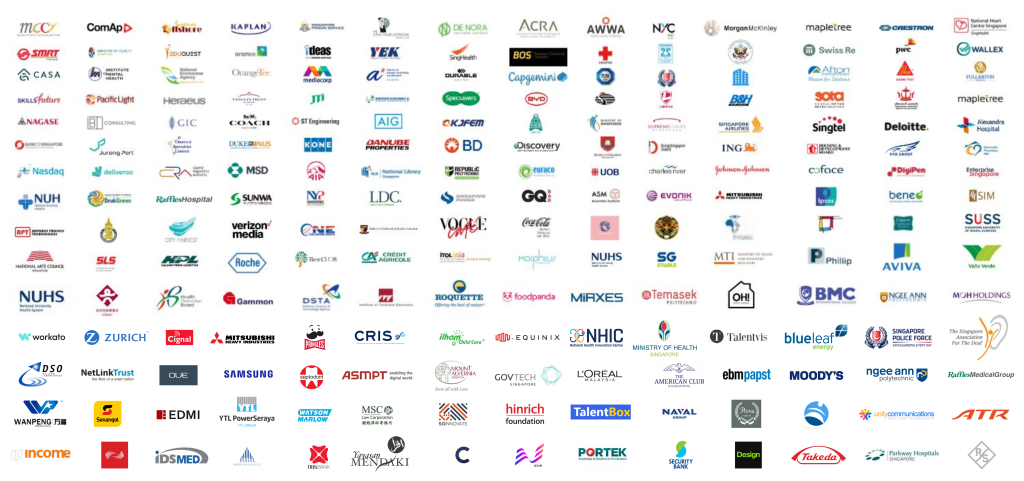The Charette Procedure Training Course in Mongolia
Our corporate training course is also available in Ulaanbaatar, Erdenet, Darkhan, Choibalsan, Ölgii, Khovd, Mandalgovi, Ulaangom, Bayankhongor, Arvaikheer, Uliastai, Baruun-Urt, Sainshand, Bulgan, Murun, Zuunmod, Altai, Dalandzadgad, Tsagaannuur, Choir, Kharkhorin, Tsetserleg, and Zamyn-Üüd.
 In the bustling urban landscapes and serene countryside vistas of Mongolia lies a profound opportunity to revolutionize collaborative design processes through The Charette Procedure Training Course. Against the backdrop of Mongolia’s rich cultural heritage and burgeoning architectural landscape, this innovative programme offers a gateway to redefining community engagement and participatory design practices. Rooted in the principles of inclusivity and creative collaboration, The Charette Procedure emerges as a beacon of hope, promising to reshape the way we approach urban planning and architectural design in Mongolia.
In the bustling urban landscapes and serene countryside vistas of Mongolia lies a profound opportunity to revolutionize collaborative design processes through The Charette Procedure Training Course. Against the backdrop of Mongolia’s rich cultural heritage and burgeoning architectural landscape, this innovative programme offers a gateway to redefining community engagement and participatory design practices. Rooted in the principles of inclusivity and creative collaboration, The Charette Procedure emerges as a beacon of hope, promising to reshape the way we approach urban planning and architectural design in Mongolia.
As participants embark on this transformative journey, they are greeted by the guiding principles of The Charette Procedure – a methodology that champions community involvement and collective problem-solving. Within the dynamic context of Mongolia, where tradition intersects with modernity and innovation thrives amidst the vast expanse of the landscape, The Charette Procedure Training Course becomes a catalyst for change. It offers a platform for architects, urban planners, community leaders, and stakeholders to come together, bridging diverse perspectives and forging collaborative solutions to complex design challenges.
Guided by seasoned facilitators well-versed in the intricacies of The Charette Procedure and attuned to the unique socio-cultural dynamics of Mongolia, participants embark on a journey of discovery and empowerment. Through interactive workshops, hands-on exercises, and immersive simulations, individuals are equipped with the tools and techniques needed to navigate the complexities of community-driven design projects with confidence and finesse. With every stroke of the pen and exchange of ideas, they contribute to shaping a future where inclusivity, sustainability, and creativity reign supreme.
Moreover, the impact of The Charette Procedure Training Course extends far beyond the confines of the classroom, reverberating throughout the corridors of Mongolian cities and rural settlements alike. It sparks a ripple effect, igniting a passion for collaborative design and community engagement that transcends boundaries and transforms lives. Thus, The Charette Procedure Training Course stands as a testament to the power of collaboration and collective action in shaping the built environment of Mongolia for generations to come.
Who Should Attend this The Charette Procedure Training Course in Mongolia
In the evolving landscape of Mongolian urban planning and architectural design, The Charette Procedure Training Course emerges as a beacon of innovation and collaboration. This dynamic programme offers a unique opportunity for professionals and stakeholders to delve into the principles and practices of participatory design, fostering inclusive decision-making processes that resonate with the diverse communities of Mongolia. Against the backdrop of Mongolia’s rich cultural heritage and burgeoning urban development, The Charette Procedure Training Course serves as a catalyst for reimagining the built environment and empowering individuals to shape the future of their communities.
Architects, Urban Planners, Landscape Architects, Community Leaders, City Officials, Environmentalists, Engineers, Social Workers, Educators, Students, Non-profit Organisations, Government Agencies, and NGOs – all those with a vested interest in shaping sustainable, inclusive, and vibrant communities in Mongolia will find immense value in the insights and techniques offered by The Charette Procedure Training Course. Through collaborative learning experiences and hands-on workshops, participants gain the skills and knowledge needed to navigate the complexities of community-driven design projects and foster meaningful engagement with stakeholders. Whether striving to enhance public spaces, address environmental challenges, or promote social equity, The Charette Procedure Training Course equips individuals with the tools to effect positive change and create spaces that reflect the aspirations and values of Mongolian communities.
- Executives
- Team Leaders
- Entrepreneurs
- Educators
- Recent Graduates
Course Duration for The Charette Procedure Training Course in Mongolia
The duration of The Charette Procedure Training Course in Mongolia is tailored to accommodate diverse schedules and preferences. Participants can opt for an immersive experience spanning three full days, delving deep into the principles and practices of participatory design within the Mongolian context. Alternatively, shorter options include a condensed one-day format, a succinct half-day session, or even compact 90-minute and 60-minute workshops, ensuring accessibility without compromising on the quality or depth of learning provided by The Charette Procedure Training Course in Mongolia.
- 2 Full Days
- 9 a.m to 5 p.m
Course Benefits of The Charette Procedure Training Course in Mongolia
Embark on a transformative journey towards inclusive and collaborative urban planning with The Charette Procedure Training Course.- Facilitates inclusive decision-making processes
- Empowers stakeholders to actively participate in urban planning initiatives
- Fosters creative solutions to complex design challenges
- Strengthens community engagement and ownership of projects
- Promotes sustainable and environmentally conscious design practices
- Enhances communication and teamwork skills among participants
- Builds stronger connections between professionals and communities
- Cultivates a deeper understanding of local context and cultural nuances
- Inspires innovation and out-of-the-box thinking in design approaches
- Drives positive change and creates vibrant, livable spaces for all.
Course Objectives for The Charette Procedure Training Course in Mongolia
Embark on a journey of empowerment and collaboration with The Charette Procedure Training Course, designed to equip participants with the skills and knowledge needed to foster inclusive decision-making and create vibrant, livable spaces for all.
- Encourage active participation from diverse stakeholders in urban planning processes
- Provide tools and techniques for generating innovative and practical design solutions
- Foster a culture of collaboration and teamwork among participants
- Enhance understanding of sustainability principles and their application in design projects
- Facilitate meaningful engagement with local communities to ensure projects meet their needs
- Develop communication skills to effectively convey ideas and solicit input from stakeholders
- Strengthen connections between professionals, community leaders, and residents to build trust and collaboration
- Deepen appreciation for the cultural context and heritage of the communities being served
- Spark creativity and inspire participants to explore unconventional design approaches
- Empower participants to advocate for positive change and social impact through their work
- Foster a sense of ownership and pride among community members in the projects they contribute to
- Create environments that promote well-being, equity, and inclusivity for all residents.
Course Content for The Charette Procedure Training Course in Mongolia
Immerse yourself in The Charette Procedure Training Course, where participants delve into the intricacies of urban planning and design processes.
- Encourage active participation from diverse stakeholders in urban planning processes
- Facilitate community workshops and forums for input gathering
- Incorporate feedback mechanisms to ensure all voices are heard
- Empower marginalized groups to participate in decision-making
- Provide tools and techniques for generating innovative and practical design solutions
- Introduce methods such as brainstorming and mind mapping for idea generation
- Utilize design charrettes and collaborative workshops to refine concepts
- Incorporate technology tools for visualization and simulation
- Foster a culture of collaboration and teamwork among participants
- Foster a supportive and inclusive environment for idea sharing
- Promote interdisciplinary collaboration between architects, planners, and community members
- Encourage peer-to-peer learning and knowledge exchange
- Enhance understanding of sustainability principles and their application in design projects
- Explore sustainable design strategies such as passive solar design and green infrastructure
- Discuss the importance of resource conservation and environmental stewardship
- Showcase case studies of successful sustainable projects
- Facilitate meaningful engagement with local communities to ensure projects meet their needs
- Conduct community needs assessments and surveys
- Organize focus groups and one-on-one interviews with community members
- Co-create design solutions with community input and feedback
- Develop communication skills to effectively convey ideas and solicit input from stakeholders
- Provide training in visual communication techniques such as sketching and rendering
- Offer workshops on effective presentation skills and public speaking
- Practice active listening and empathetic communication
- Strengthen connections between professionals, community leaders, and residents to build trust and collaboration
- Organize networking events and social gatherings to foster relationships
- Establish mentorship programs to connect emerging professionals with experienced practitioners
- Partner with local organizations and institutions to leverage resources and expertis
- Deepen appreciation for the cultural context and heritage of the communities being served
- Conduct cultural sensitivity training for participants
- Incorporate traditional design elements and local materials into projects
- Respect and honor indigenous knowledge and practices
- Spark creativity and inspire participants to explore unconventional design approaches
- Encourage experimentation and risk-taking in design exercises
- Showcase innovative case studies and examples from around the world
- Challenge participants to think outside the box and push the boundaries of conventional design
- Empower participants to advocate for positive change and social impact through their work
- Provide training in community organizing and advocacy skills
- Highlight the role of design in addressing social justice issues and promoting equity
- Encourage participants to become champions for inclusive and sustainable development
- Foster a sense of ownership and pride among community members in the projects they contribute to
- Celebrate project milestones and achievements with the community
- Involve community members in the design and implementation process
- Create opportunities for community engagement and volunteer participation
- Create environments that promote well-being, equity, and inclusivity for all residents
- Design inclusive public spaces that accommodate diverse needs and abilities
- Address social determinants of health and equity in project planning
- Advocate for policies and initiatives that promote social justice and equal access to resources
Course Fees for The Charette Procedure Training Course in Mongolia
Participants interested in enrolling in The Charette Procedure Training Course can expect flexible pricing options tailored to accommodate diverse budgets and preferences. With four distinct pricing tiers available, ranging from comprehensive packages to streamlined options, individuals and organisations can select the plan that best suits their needs. Whether opting for a full-immersion experience or a more concise offering, The Charette Procedure Training Course ensures accessibility without compromising on the quality or depth of learning provided.
- USD 679.97 For a 60-minute Lunch Talk Session.
- USD 289.97 For a Half Day Course Per Participant.
- USD 439.97 For a 1 Day Course Per Participant.
- USD 589.97 For a 2 Day Course Per Participant.
- Discounts available for more than 2 participants.
Upcoming Course and Course Brochure Download for The Charette Procedure Training Course in Mongolia
Stay tuned for exciting updates and the opportunity to avail of informative brochures about the upcoming The Charette Procedure Training Course, designed to equip participants with invaluable skills for inclusive urban planning and design. Keep an eye out for announcements regarding new course offerings, enhanced content, and special promotions, ensuring you stay informed about the latest developments in this transformative programme. Whether you’re a seasoned professional or a newcomer to the field, The Charette Procedure Training Course promises to be a gateway to unlocking your potential in shaping vibrant and sustainable communities.

The Best Corporate Training Courses in Mongolia, Corporate Training Courses in Mongolia
